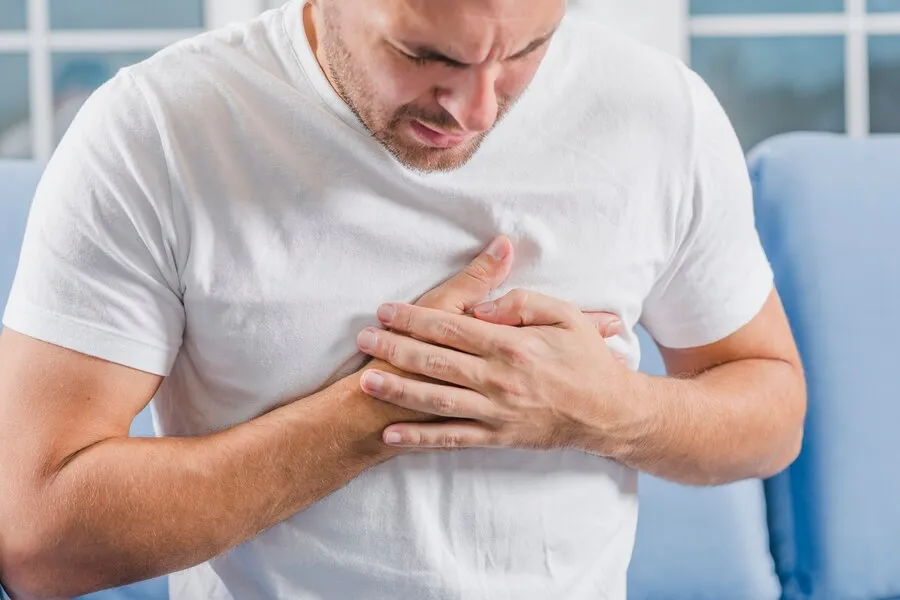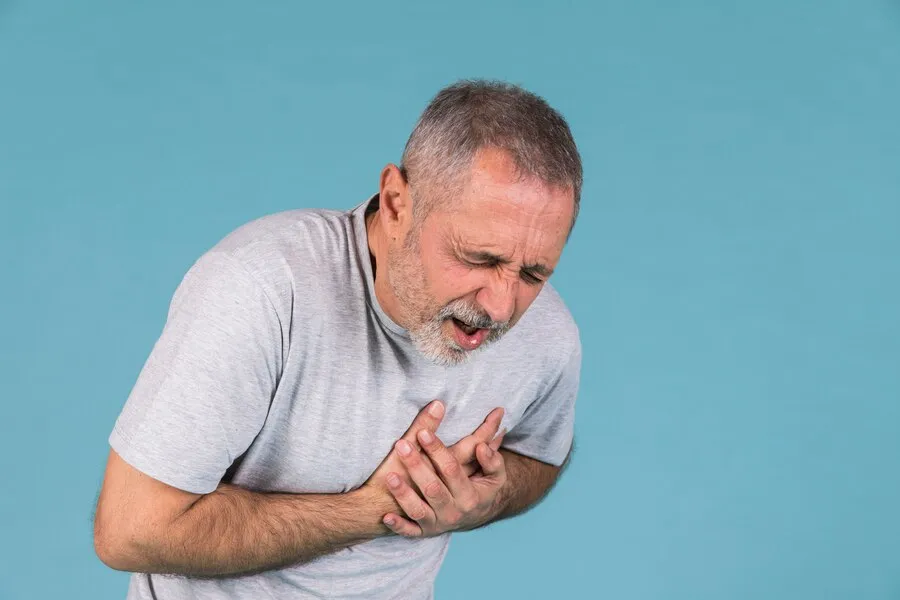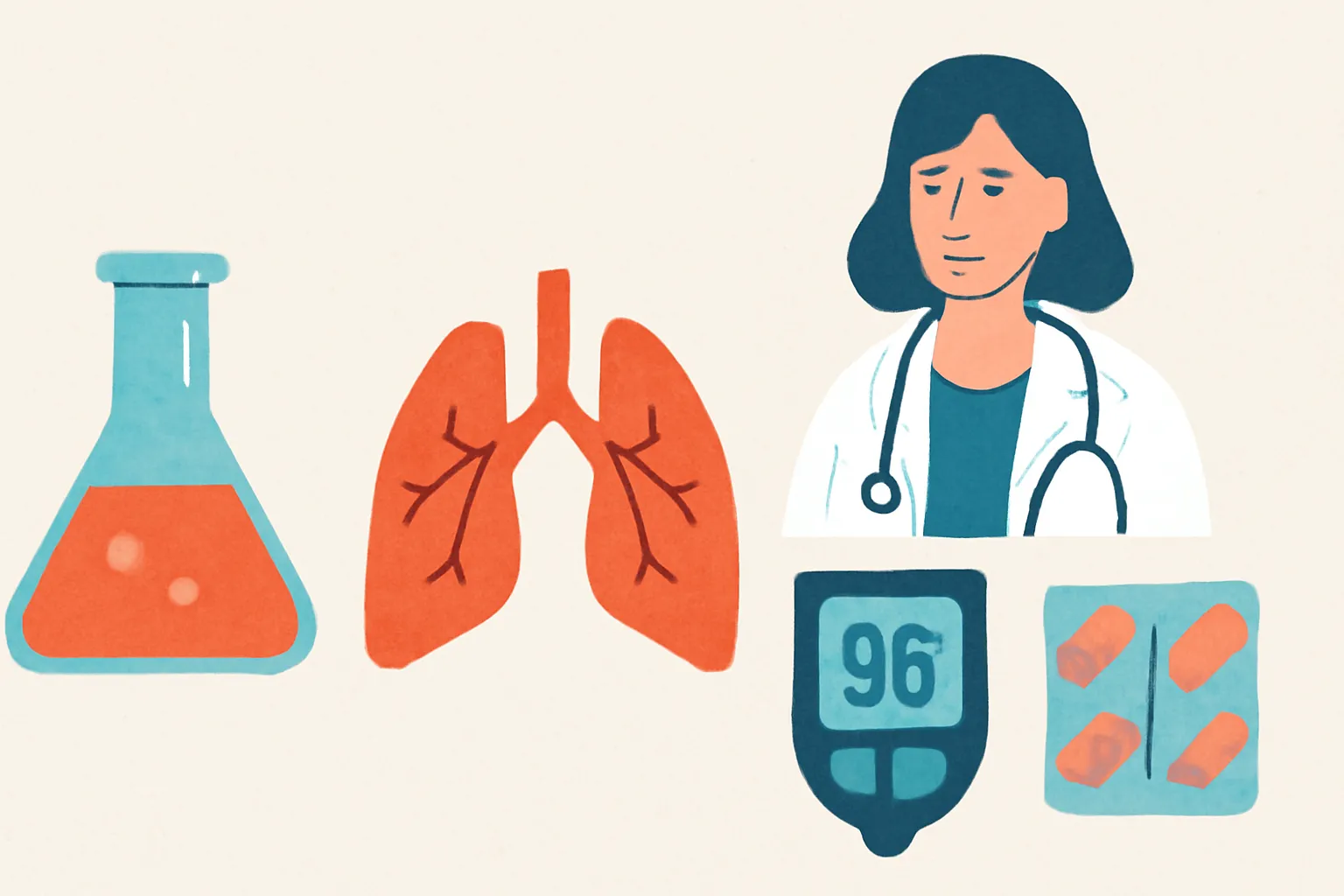Chest pain can arise from various causes, some of which are serious. Here are the main causes:
- Heart Problems: These include angina and heart attacks, which occur when the heart does not get enough blood. Angina causes a squeezing or pressure-like pain, while a heart attack may cause more intense pain along with other symptoms like sweating and nausea.
- Digestive Issues: Conditions like heartburn or gastroesophageal reflux disease (GERD) can cause a burning pain in the chest, especially after eating.
- Lung Problems: Pneumonia, which is an infection in the lungs, or a pulmonary embolism, which is a blood clot in the lung, can cause chest pain. This pain is often sharp and worsens with breathing.
- Muscle or Bone Issues: Pain from a pulled muscle or rib injury is usually localized and sharp. It often worsens with movement or pressing on the affected area.
- Stress and Anxiety: Emotional stress or panic attacks can cause chest pain that mimics heart pain. This is usually accompanied by rapid breathing and a feeling of panic.
Identifying the exact cause of chest pain is crucial. If you experience chest pain, especially if it is severe or accompanied by other symptoms, seek medical help immediately. For professional care and treatment, visit Foundation Pain & Spine PLLC. More information is available at https://foundationpainspine.com/.
How to identify the reason for chest pain

Identifying the reason for chest pain can be crucial. Here are some steps to help:
- Assess the pain’s location and type: Is it sharp, dull, burning, or crushing? Heart-related pain often feels like pressure or tightness, while muscle pain is usually more localized and sharp.
- Notice when it happens: Does the pain occur after eating, during exercise, or at rest? Pain after eating might suggest a digestive issue like GERD.
- Check for other symptoms: Look for shortness of breath, sweating, nausea, or dizziness. These can accompany heart problems.
- Consider your history: If you have risk factors like high blood pressure, diabetes, or smoking, your chest pain might be heart-related.
- Seek medical advice: If the pain is severe, lasts more than a few minutes, or is accompanied by other symptoms, seek emergency help.
A healthcare professional can perform tests, such as an EKG, blood tests, or imaging, to determine the cause.
Also Read: Everything You Need to Know About Affordable First Aid Courses
How is chest pain usually treated?

Chest pain treatment depends on the cause. Here are common treatments for different causes:
- Heart-related pain: If caused by heart issues like angina or a heart attack, treatment might include medications to improve blood flow, like aspirin or nitroglycerin. In serious cases, procedures like angioplasty or surgery may be needed.
- Digestive issues: For pain from heartburn or GERD, antacids or other medications that reduce stomach acid can help.
- Lung problems: If the pain is due to pneumonia or a blood clot, antibiotics or blood thinners might be prescribed.
- Muscle or bone issues: Pain from muscle strain or rib injuries is usually treated with rest, pain relievers, and sometimes physical therapy.
- Stress and anxiety: If chest pain is related to stress, treatments may include stress management techniques, therapy, or medications for anxiety.
Always seek medical advice for chest pain to get the right treatment.
Foundation Pain & Spine PLLC
8390 Lyndon B Johnson Fwy Suite 500, Dallas, TX 75243, United States
(469) 214-5735




